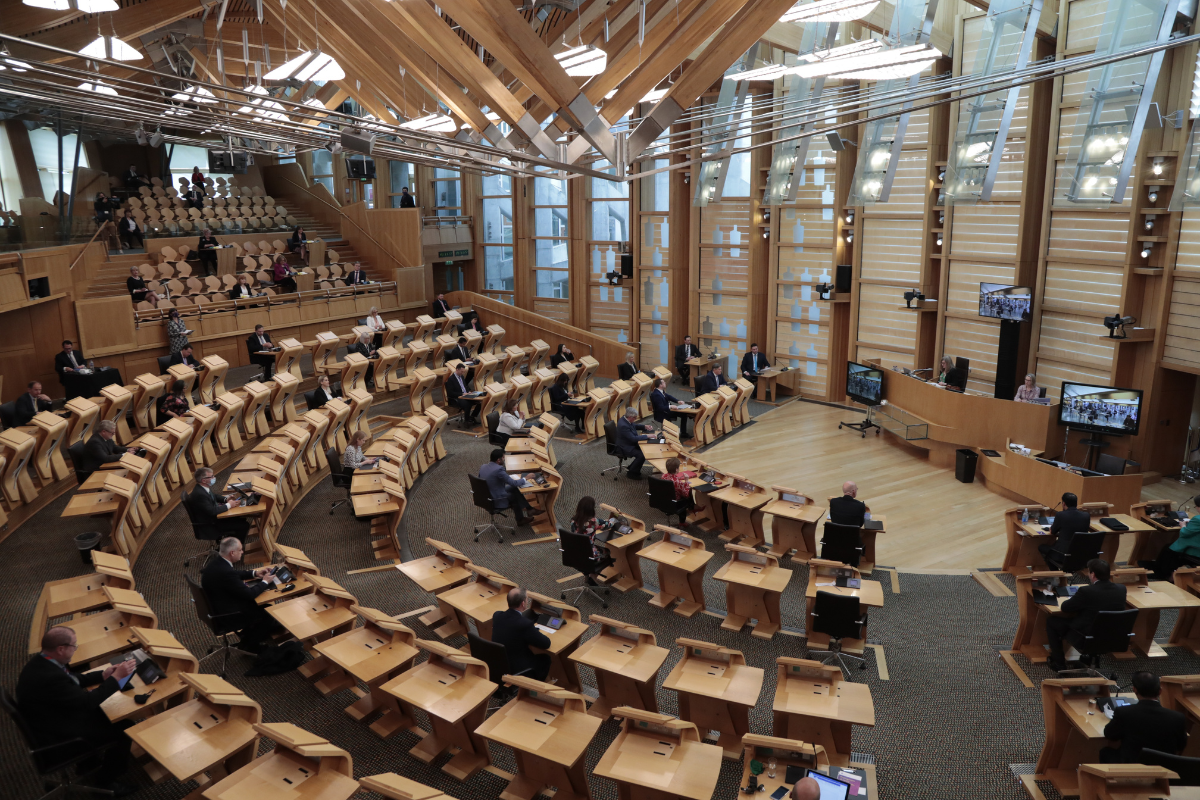
THERE are fundamental questions about how devolution works outside of the EU which must be urgently answered, a Scottish Parliament committee has concluded in a fresh report which raises “considerable” concerns about potential power-grabbing by the UK Government post-Brexit.
Holyrood’s Constitution, Europe, External Affairs and Culture Committee has highlighted “substantive” differences between the views of the UK Government and the Scottish and Welsh governments when it comes to future alignment with EU law.
The report outlining these differences raise key constitutional questions, including the extent to which the UK can accommodate four different regulatory environments within a cohesive internal market.
It also asks whether the current institutional mechanisms are sufficient to resolve differences between the four governments within the UK when there are fundamental disagreements regarding alignment within EU law.
The committee is concerned with how devolution needs to evolve to address these questions. This includes the operation of the Sewel Convention, which the Committee agrees is under strain following Brexit.
In the conclusion of the report, the committee said the extent of UK Ministers’ new delegated powers in devolved areas amounts to “significant constitutional change” and members have “considerable” concerns this has happened, and is continuing to happen, on an ad hoc basis “without any overarching consideration of the impact on how devolution works”.
The Sewel Convention is designed to ensure when the UK Parliament wants to legislate on a matter within devolved competence, it does not do so without the relevant institution – eg. Holyrood – having passed a legislative consent motion.
Committee convener Clare Adamson said: “As a Committee, we have already set out our concerns about the risks for devolved Parliaments as a result of Brexit, but the questions raised in our report make it clear that there are fundamental issues which must be addressed urgently.
“Without wider debate, both in this Parliament and elsewhere, these fundamental questions will go unresolved, and the way devolution works outside of the EU will remain uncertain.”
The report states there is a need for a “much wider” public debate about where power lies within the devolution settlement following the UK’s departure from the EU, and this needs to address the extent of regulatory autonomy within the UK internal market.
Experts at the National Centre for Social Research (NatCen) said results of a new major survey revealed this week show how Brexit has created divisions about the governance of the UK that go beyond Scotland and the new UK Government is facing a “particularly formidable challenge” in bringing the Union together.
Deputy convener, Donald Cameron, added: “Our committee is agreed that there is a need for a wide debate on the very serious and complex issues raised in our report.
“However, this debate is not simply one for governments and parliaments, but businesses, civic society and the wider public as well in order that we can fully explore the current issues facing not just the Scottish Parliament, but the wider devolution process.”







